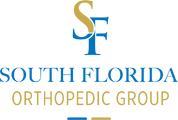 If your child has been diagnosed with scoliosis, take a deep breath. Scoliosis is treatable!
If your child has been diagnosed with scoliosis, take a deep breath. Scoliosis is treatable!
If you are unsure exactly what scoliosis is, it occurs when a child’s spine curves abnormally to the right or left in an s-shape. Small curves in the spine are actually considered normal, but any curve greater than 10 degrees in considered to be scoliosis. Children with mild scoliosis require NO treatment; they just need to have a periodic spine checks throughout the year. Even in severe cases when bracing or surgery is required to straighten the spine, your child can live a normal, active life just like other kids.
If scoliosis runs in your family, you may already be familiar with the condition.
Here are a few facts about scoliosis:
- Only 2% of the US population has scoliosis.
- Scoliosis often runs in families.
- Treatment outcomes are best when diagnosed early, while the spine is still growing.
- Scoliosis does not usually cause back pain or neck pain.
- Physical activity is encouraged for scoliosis.
There are three types of scoliosis. Idiopathic scoliosis (no known cause) is the most common, and runs in families. Congenital scoliosis is a rare birth defect where the bones are asymmetrical at birth and the vertebrae may only be partially formed. Neuromuscular scoliosis is more complex; it occurs with spine bifida, cerebral palsy, muscular dystrophy.
The signs of scoliosis are fairly obvious, if you know what to look for, but often times it is discovered during a routine visit with a pediatrician. Some of the signs to look for include:
- Uneven shoulders, hips, or leg length
- Constant leaning to one side
- Prominent shoulder blade(s)
- Obvious curvature of the spine (in rare cases)
Here’s how you can do a spine check at home:
Have your child stand up straight in front of you. Are the shoulders level? Does one arm hang lower than the other? Have him or her turn around and do a forward bend. Check the back muscles and rib cage – do they look even?
If anything seems out of alignment, see your pediatrician for a referral to a doctor who specializes in scoliosis, like a pediatric orthopedic surgeon. Treatments vary for scoliosis, depending on the severity and cause of the disease. Mild curves do not require treatment, but regular monitoring is necessary to make sure things don’t get worse. In larger curves when a child is still growing, bracing is very effective treatment. In large curves, surgery is often recommended. The good news is that even if your child is still growing and needs surgery, instruments such as “growing rods” can be used so that full growth potential can be realized.
Kids will still be kids, even with scoliosis
As a parent of a child with scoliosis, it is understandable to have concerns about your child’s ability to perform regular activities and remain active. Many case studies of scoliosis include young people who were diagnosed as toddlers. Their parents noticed something was off with their posture or the way they walked, and decided to seek medical attention. Some of these kids wore a brace for 20 hours a day for several years. Others had amazing outcomes from surgery, returning to normal activity after 30 days! In all of these cases, these kids did not let scoliosis affect their ability to play, run, jump, ride bikes, or swim!
The Future Looks Bright!
According to Daniel W. Green, MD, Associate Attending Orthopedic Surgeon at Hospital for Special Surgery (HSS), the future of scoliosis is promising:
“Numerous interesting research initiatives are underway to improve our spine instrumentation for children and teenagers with scoliosis. In addition, genetic tests may be available in a few years that will help us predict which children will progress to have severe deformities and which ones won’t. Researchers are also trying to find a way to surgically modulate a mild curve at an earlier stage and prevent it from progressing—or even reverse the condition.” – Dr. Mark Moran, Scoliosis Expert

If you are located in South Florida, turn to the spine experts at Meli Orthopedic Centers of Excellence. You can count on us to provide the right diagnosis and care for scoliosis. We have two convenient locations in Margate and Fort Lauderdale. Scoliosis expert Dr. Mark Moran is a board-certified and fellowship trained orthopedic surgeon who specializes in pediatric and scoliosis care. Here, your child’s spine is in the right hands.
